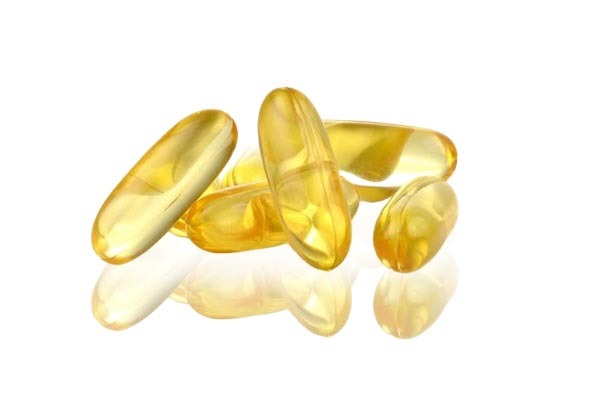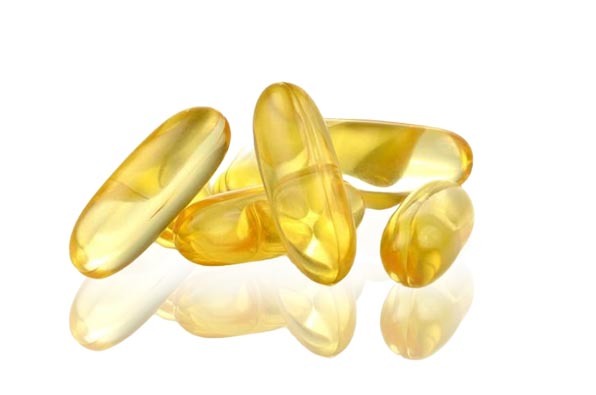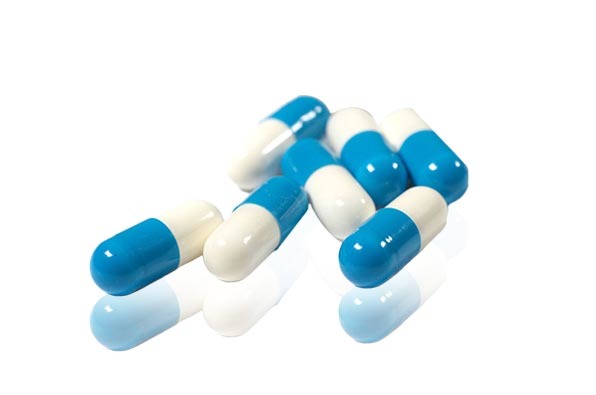News center
Unlock the Power of Gelatin Collagen: A Comprehensive Guide
Release time:
2024-07-02
**Table of Contents:**
1. **Introduction**
2. **What is Gelatin Collagen?**
- What are the benefits of using gelatin collagen in food production?
- How is gelatin collagen different from other food additives?
3. **The Science Behind Gelatin Collagen**
- How is gelatin collagen extracted?
- What are the properties of gelatin collagen that make it an effective food additive?
4. **Uses of Gelatin Collagen in the Food Industry**
- How is gelatin collagen used in dairy products?
- What role does gelatin collagen play in confectionery items?
- Are there any other unique applications of gelatin collagen in food production?
5. **Incorporating Gelatin Collagen Into Your Food Production**
- What are the best practices for using gelatin collagen in food manufacturing?
- How can you ensure the quality and safety of gelatin collagen in your products?
6. **FAQs**
- What is the shelf life of gelatin collagen?
- Can gelatin collagen be used in vegan or vegetarian products?
- Are there any potential allergens in gelatin collagen?
- How does gelatin collagen contribute to the texture of food products?
- What are the regulatory considerations for using gelatin collagen in food production?
7. **Conclusion**
**What is Gelatin Collagen?**
Gelatin collagen is a protein derived from animal connective tissues, primarily from bovine or porcine sources. It is commonly used as a food additive in the agricultural food industry due to its unique properties and versatile applications. Gelatin collagen is known for its ability to improve the texture, consistency, and stability of various food products, making it a popular choice among food manufacturers.
**The Science Behind Gelatin Collagen**
The extraction process of gelatin collagen involves breaking down collagen fibers through hydrolysis, resulting in a gelatinous substance that can be further processed into a powdered form. Gelatin collagen contains high levels of essential amino acids, such as glycine and proline, which are beneficial for skin health, joint function, and overall well-being. its gelling properties and water-holding capacity make it an ideal ingredient for creating emulsions, gels, and coatings in food production.
**Uses of Gelatin Collagen in the Food Industry**
Gelatin collagen is widely used in various food products, including dairy items, confectionery treats, and meat-based products. It acts as a stabilizer, thickener, and texturizer in dairy desserts, such as yogurt and ice cream, providing a creamy mouthfeel and smooth consistency. In confectionery items, gelatin collagen is used to create gummies, marshmallows, and jellies, giving them their characteristic chewy and elastic properties. Additionally, gelatin collagen can be incorporated into meat products to improve their juiciness, tenderness, and shelf life.
**Incorporating Gelatin Collagen Into Your Food Production**
When using gelatin collagen in food manufacturing, it is essential to consider factors such as the concentration, hydration, and processing conditions to achieve the desired product quality. Quality control measures, such as testing for gel strength, viscosity, and microbiological safety, should be implemented to ensure that the final products meet regulatory standards and consumer expectations. By following best practices and guidelines for using gelatin collagen, food manufacturers can enhance the sensory attributes, nutritional value, and marketability of their products.
**FAQs**
- What is the shelf life of gelatin collagen?
Gelatin collagen has a long shelf life when stored in a cool, dry place away from direct sunlight. It is recommended to use gelatin collagen within the specified expiration date for optimal performance.
- Can gelatin collagen be used in vegan or vegetarian products?
As gelatin collagen is derived from animal sources, it is not suitable for vegan or vegetarian diets. Alternative plant-based gelling agents, such as agar-agar or carrageenan, can be used as substitutes in vegan or vegetarian products.
- Are there any potential allergens in gelatin collagen?
Gelatin collagen is generally considered safe for consumption; however, individuals with known allergies to beef or pork may experience adverse reactions. It is advisable to consult with a healthcare professional before consuming products containing gelatin collagen.
- How does gelatin collagen contribute to the texture of food products?
Gelatin collagen acts as a gelling agent and stabilizer in food products, giving them a smooth, firm, and elastic texture. Its ability to form a gel matrix enhances the sensory attributes and mouthfeel of various food items.
- What are the regulatory considerations for using gelatin collagen in food production?
Food manufacturers must comply with regulatory requirements and guidelines set forth by local health authorities when using gelatin collagen in food production. This includes ensuring the safety, quality, and labeling of products containing gelatin collagen.
**Conclusion**
In conclusion, gelatin collagen is a versatile and valuable food additive that offers numerous benefits to the agricultural food industry. Its unique properties, such as gelling, stabilizing, and texturizing capabilities, make it an indispensable ingredient in a wide range of food products. By understanding the science behind gelatin collagen, exploring its uses in food production, and implementing best practices for incorporation, food manufacturers can unlock the power of gelatin collagen to enhance the quality, appeal, and market success of their products. Embrace the potential of gelatin collagen in your food production processes and experience the transformative impact it can have on your creations.
1. **Introduction**
2. **What is Gelatin Collagen?**
- What are the benefits of using gelatin collagen in food production?
- How is gelatin collagen different from other food additives?
3. **The Science Behind Gelatin Collagen**
- How is gelatin collagen extracted?
- What are the properties of gelatin collagen that make it an effective food additive?
4. **Uses of Gelatin Collagen in the Food Industry**
- How is gelatin collagen used in dairy products?
- What role does gelatin collagen play in confectionery items?
- Are there any other unique applications of gelatin collagen in food production?
5. **Incorporating Gelatin Collagen Into Your Food Production**
- What are the best practices for using gelatin collagen in food manufacturing?
- How can you ensure the quality and safety of gelatin collagen in your products?
6. **FAQs**
- What is the shelf life of gelatin collagen?
- Can gelatin collagen be used in vegan or vegetarian products?
- Are there any potential allergens in gelatin collagen?
- How does gelatin collagen contribute to the texture of food products?
- What are the regulatory considerations for using gelatin collagen in food production?
7. **Conclusion**
**What is Gelatin Collagen?**
Gelatin collagen is a protein derived from animal connective tissues, primarily from bovine or porcine sources. It is commonly used as a food additive in the agricultural food industry due to its unique properties and versatile applications. Gelatin collagen is known for its ability to improve the texture, consistency, and stability of various food products, making it a popular choice among food manufacturers.
**The Science Behind Gelatin Collagen**
The extraction process of gelatin collagen involves breaking down collagen fibers through hydrolysis, resulting in a gelatinous substance that can be further processed into a powdered form. Gelatin collagen contains high levels of essential amino acids, such as glycine and proline, which are beneficial for skin health, joint function, and overall well-being. its gelling properties and water-holding capacity make it an ideal ingredient for creating emulsions, gels, and coatings in food production.
**Uses of Gelatin Collagen in the Food Industry**
Gelatin collagen is widely used in various food products, including dairy items, confectionery treats, and meat-based products. It acts as a stabilizer, thickener, and texturizer in dairy desserts, such as yogurt and ice cream, providing a creamy mouthfeel and smooth consistency. In confectionery items, gelatin collagen is used to create gummies, marshmallows, and jellies, giving them their characteristic chewy and elastic properties. Additionally, gelatin collagen can be incorporated into meat products to improve their juiciness, tenderness, and shelf life.
**Incorporating Gelatin Collagen Into Your Food Production**
When using gelatin collagen in food manufacturing, it is essential to consider factors such as the concentration, hydration, and processing conditions to achieve the desired product quality. Quality control measures, such as testing for gel strength, viscosity, and microbiological safety, should be implemented to ensure that the final products meet regulatory standards and consumer expectations. By following best practices and guidelines for using gelatin collagen, food manufacturers can enhance the sensory attributes, nutritional value, and marketability of their products.
**FAQs**
- What is the shelf life of gelatin collagen?
Gelatin collagen has a long shelf life when stored in a cool, dry place away from direct sunlight. It is recommended to use gelatin collagen within the specified expiration date for optimal performance.
- Can gelatin collagen be used in vegan or vegetarian products?
As gelatin collagen is derived from animal sources, it is not suitable for vegan or vegetarian diets. Alternative plant-based gelling agents, such as agar-agar or carrageenan, can be used as substitutes in vegan or vegetarian products.
- Are there any potential allergens in gelatin collagen?
Gelatin collagen is generally considered safe for consumption; however, individuals with known allergies to beef or pork may experience adverse reactions. It is advisable to consult with a healthcare professional before consuming products containing gelatin collagen.
- How does gelatin collagen contribute to the texture of food products?
Gelatin collagen acts as a gelling agent and stabilizer in food products, giving them a smooth, firm, and elastic texture. Its ability to form a gel matrix enhances the sensory attributes and mouthfeel of various food items.
- What are the regulatory considerations for using gelatin collagen in food production?
Food manufacturers must comply with regulatory requirements and guidelines set forth by local health authorities when using gelatin collagen in food production. This includes ensuring the safety, quality, and labeling of products containing gelatin collagen.
**Conclusion**
In conclusion, gelatin collagen is a versatile and valuable food additive that offers numerous benefits to the agricultural food industry. Its unique properties, such as gelling, stabilizing, and texturizing capabilities, make it an indispensable ingredient in a wide range of food products. By understanding the science behind gelatin collagen, exploring its uses in food production, and implementing best practices for incorporation, food manufacturers can unlock the power of gelatin collagen to enhance the quality, appeal, and market success of their products. Embrace the potential of gelatin collagen in your food production processes and experience the transformative impact it can have on your creations.
NEWS





